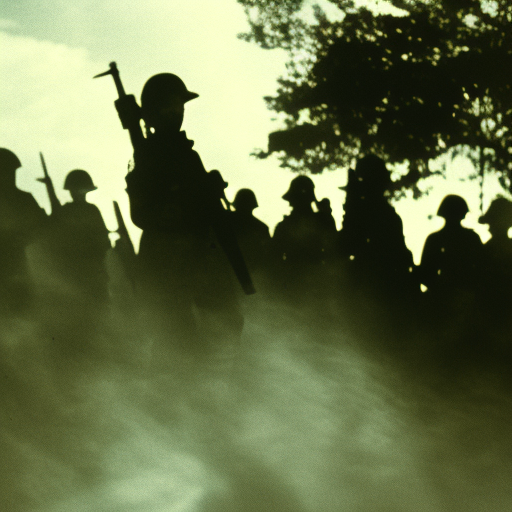Battle of Brunete: A Major Battle in the Spanish Civil War
The Battle of Brunete was a significant military engagement that took place during the Spanish Civil War from July 6 to July 25, 1937. It was fought between the Republican forces, loyal to the Spanish government, and the Nationalist forces, led by General Francisco Franco. The battle occurred near the town of Brunete, located in the western part of the Madrid front.
Background:
By mid-1937, the Spanish Civil War had been raging for almost a year. The Republicans, supported by the Soviet Union, were fighting to preserve the Spanish Republic, while the Nationalists, backed by fascist Italy and Nazi Germany, sought to overthrow it. The Nationalists had made significant gains and were advancing towards Madrid, the Republican capital.
Republican Objectives:
The Republican government, led by Prime Minister Juan Negrin, planned the Battle of Brunete as a major offensive to divert Nationalist forces away from Madrid. The Republicans aimed to break the Nationalist siege of the capital and regain control of strategic areas in the region.
Course of the Battle:
The Republican offensive began on July 6, 1937, with an intense artillery bombardment followed by a ground assault. The initial Republican attack achieved some success, pushing the Nationalists back and capturing several key positions. However, the Nationalists quickly regrouped and launched a counteroffensive, led by General Jose Enrique Varela.
The battle soon turned into a fierce and bloody struggle. Both sides suffered heavy casualties as they fought for control of villages, hills, and roads. The Nationalists, with their superior air power and artillery support, were able to halt the Republican advance and gradually regain lost ground.
Foreign Involvement:
The Battle of Brunete saw significant foreign involvement. The Republicans received military aid from the Soviet Union, which included tanks, aircraft, and advisers. The International Brigades, composed of foreign volunteers, also played a crucial role in the battle. However, the Nationalists were supported by Italian and German forces, who provided them with tanks, aircraft, and experienced troops.
Outcome and Significance:
Despite initial gains, the Republican offensive ultimately failed to achieve its objectives. The Nationalists successfully repelled the Republican forces and maintained their siege of Madrid. The battle resulted in heavy casualties on both sides, with estimates ranging from 20,000 to 30,000 dead or wounded.
The Battle of Brunete had several significant consequences. It demonstrated the Nationalists’ military superiority, particularly in terms of air power and artillery support. The battle also highlighted the challenges faced by the Republicans, who struggled with coordination and lacked effective leadership. Additionally, the battle further polarized international opinion on the Spanish Civil War, with the Soviet Union and its allies supporting the Republicans, while fascist Italy and Nazi Germany backed the Nationalists.
Legacy:
The Battle of Brunete marked a turning point in the Spanish Civil War. The Republican defeat at Brunete weakened their position and allowed the Nationalists to continue their advance towards Madrid. The battle also had a demoralizing effect on Republican forces, who suffered heavy losses and faced internal divisions.
In conclusion, the Battle of Brunete was a major engagement in the Spanish Civil War that took place in July 1937. The battle saw the Republican forces launch a major offensive to divert Nationalist attention away from Madrid. Despite initial success, the Republicans were ultimately repelled by the Nationalists, resulting in heavy casualties and a setback for the Republican cause. The battle highlighted the military superiority of the Nationalists and further polarized international support for the warring factions.












